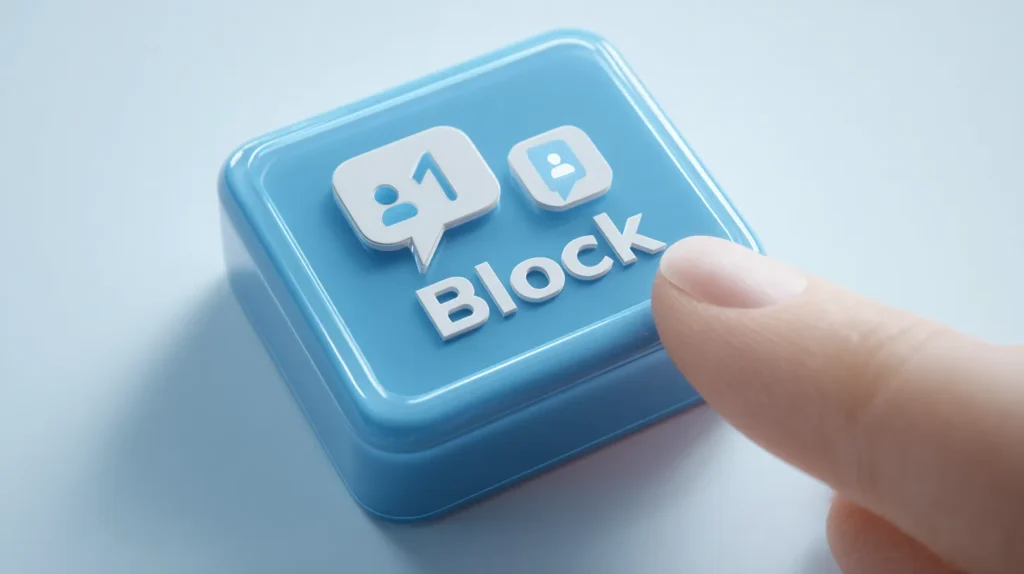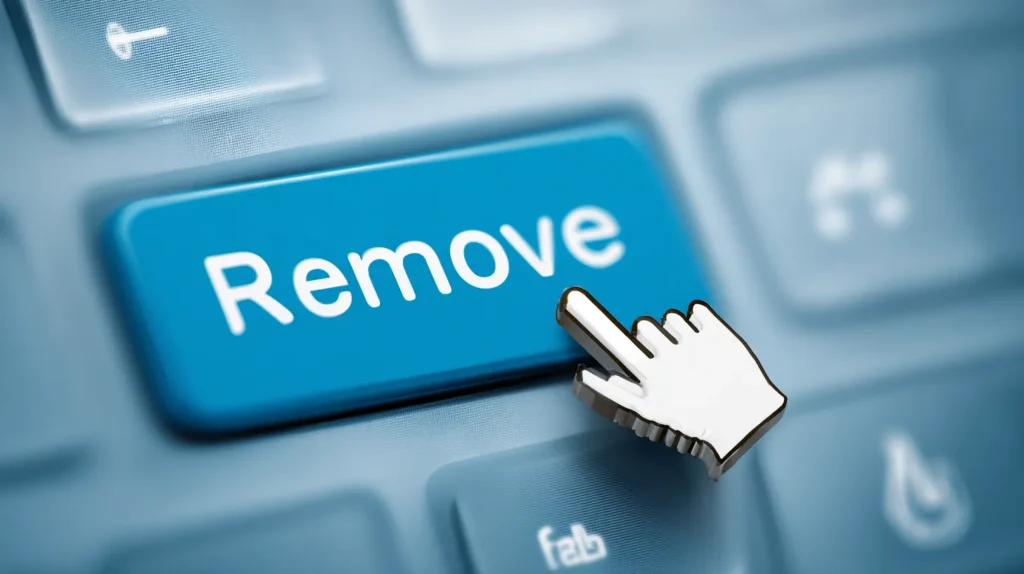Over time, it's natural for interactions on social media to change—virtual friendships grow stronger, grow colder, or even disappear without warning. On Facebook, this can be seen through the absence of likes, comments, or even the disappearance of profiles from your friends list. But have these people deleted you, blocked you, or simply drifted away? Understanding the signs can help clarify what's really happening with your profile.
Have you lost connections on Facebook? Understand what might be happening with your profile. Have you noticed that some friends have disappeared from your list or stopped interacting? Learn how to identify the signs of deletion, blocking, or distancing on Facebook.
⬆️ The best apps to know if someone has blocked you on Facebook ⬆️
Have you logged into Facebook and noticed someone missing from your friends list? Has that person you used to exchange likes and messages with simply disappeared? Well, if so, someone may have decided to delete or even block you. But how can you know for sure? And, more importantly, why wait in silence when you can find out the truth in just a few clicks?
If you suspect you've been excluded from Facebook, know that you're not alone. The social network continues to be a space where relationships are created, but also ended. And when this happens without warning, the feeling of exclusion can be uncomfortable—especially when it involves people close to you. Therefore, it's essential to understand the signs, act intelligently, and, of course, rely on the right apps to help you in this mission.

In this article, we'll show you how to find out if someone has unfriended or blocked you on Facebook. You'll learn about three reliable apps that track your friends list and alert you when someone decides to cut ties online: Who Deleted Me on Facebook, Facebook Friend Tracker and Who Unfriended Me. We'll also compare them to help you choose the most efficient one.
Why doesn't Facebook notify you when someone deletes you?
First of all, it's worth remembering that Facebook, by default, does not send notifications when someone deletes you from their friends list or block you. This decision is intentional: the social network prefers to maintain a more "neutral" environment, avoiding direct conflicts between users. However, this also leaves room for doubt and distrust.
When someone deletes you, you simply stop seeing their posts, you can no longer tag or view content shared with friends, and the "Add Friend" button reappears. If you block someone, their profile disappears completely. The person doesn't appear in searches, their old messages disappear, and any attempts to interact are impossible.
Given this, it's easy to feel ignored, or even intentionally excluded. To find out if this is what happened—and who did it—there are specific tools that analyze your friends list in real time.
Apps to find out if you've been deleted or blocked on Facebook
Now that you understand how Facebook handles deletions and blocks, it's time to learn about the apps that reveal what's hidden. Below, we'll show you how. Who Deleted Me, Facebook Friend Tracker and Who Unfriended Me work, in addition to their strengths and limitations.
🕵️♂️ Who Deleted Me on Facebook – The classic way to detect if someone deleted you
Among all, the Who Deleted Me is one of the most popular. It tracks changes in your friends list and notifies you immediately if someone has unfriended you. It also shows who has deactivated their profile and who you've unfriended yourself, which helps you better understand what's happening.
While it doesn't directly identify who blocked you, it does record the sudden absence of contacts. So, if someone deletes or blocks you, the app detects the change—and presents this information clearly.
Benefits:
- Intuitive and easy-to-use interface
- Real-time reporting on friend losses
- Deletion history for consultation
Disadvantages:
- Does not identify the reason for exclusion
- Works best if installed before connection loss


📱 Facebook Friend Tracker – Active and detailed monitoring of exclusion
O Facebook Friend Tracker goes beyond simply detecting deletions. It also shows who interacts with you the most, which contacts are inactive, and even who stopped responding to your posts. This allows you to understand, for example, if you're being ignored before you're deleted.
The app's biggest selling point is its frequent updates. It monitors your account in near real-time, making it ideal for those who want to maintain constant control over their network.
Benefits:
- Analysis of engagement and interaction drops
- Immediate notifications about lost friends
- Clean and modern look
Disadvantages:
- Some features require a premium plan
- May consume more battery if used in the background

📊 Who Unfriended Me – Simple, straightforward and functional
O Who Unfriended Me It's great for those who want a lightweight and effective app. It delivers on its promises: it notifies you whenever someone decides to unfriend you, without any fuss. Just sync your friends list and leave the app active for it to do the tracking.
While it doesn't have the in-depth analytics of Friend Tracker, Who Unfriended Me is ideal for those who just want to know who unfriended them — without too many extra details.
Benefits:
- Easy to set up and use
- Clear and quick warnings
- Good compatibility with different versions of Facebook
Disadvantages:
- Basic interface
- Few additional features


Comparing apps: which one is right for you?
| Application | Best for | Detect deletion? | Detect blockage? | Ease of use |
|---|---|---|---|---|
| Who Deleted Me | Loss monitoring | Yes | Indirectly | High |
| Facebook Friend Tracker | Engagement and exclusion analysis | Yes | Partially | Average |
| Who Unfriended Me | Simple and fast detection | Yes | No | Very high |
What to do after being deleted on Facebook?
Finding out you've been deleted or blocked on Facebook can generate a range of feelings—from surprise to frustration. However, it's important to approach the situation with maturity. Sometimes people simply go their separate ways, and digital exclusion is a reflection of this.
Once you've confirmed that someone has unfriended you, avoid acting impulsively. Instead, use the information as a basis for deciding whether it's worth maintaining contact through other means or simply moving on. After all, Facebook should reflect real relationships—not virtual obligations.

Also, take this opportunity to review your friends list, enable two-step verification, and ensure your account is protected from unauthorized access.
Beware of hasty interpretations
While apps offer concrete data, deletion doesn't always mean personal rejection. In many cases, people deactivate accounts, clean up their network, or temporarily block accounts for personal reasons. Therefore, use these tools with balance and responsibility.
What's more, avoid falling for fake apps that promise to reveal everything about other people's profiles. Many of these apps can violate your privacy or put your data at risk. Always choose reliable and recognized solutions.
Conclusion: Digital divides happen, but you can deal with them
Yes, it can be painful to discover that someone has chosen to delete or block you. However, now you know how to safely identify these actions using tools like Who Deleted Me, Facebook Friend Tracker and Who Unfriended Me.
With these apps, you gain more clarity about your network and can more consciously decide how to handle each change. After all, true connections resist blocks and deletions. And, ultimately, knowing who has left your digital life also helps you value those who remain.
When using social media monitoring apps, such as those that help you identify who has blocked or unfriended you, it's important to do so consciously and responsibly. These apps may require access to your personal information, which can pose risks to your privacy and online security. Furthermore, digital interactions are complex, and the reasons someone blocks or unfriends you can be personal. Use these tools to improve your interactions, but always respect the privacy of others and the security of your account.
